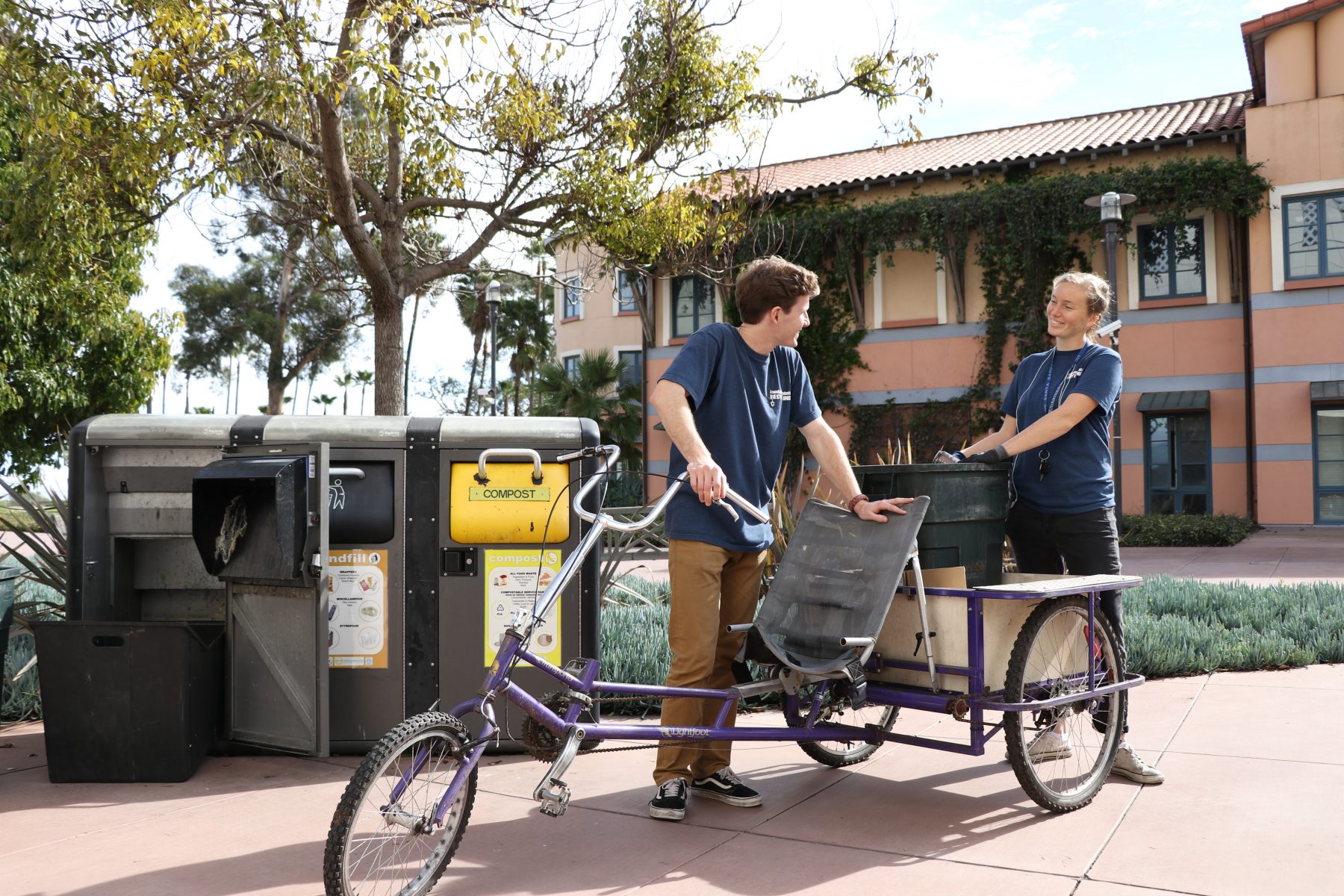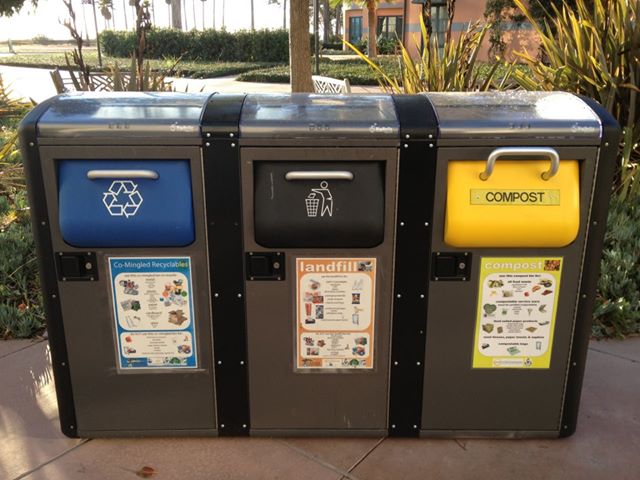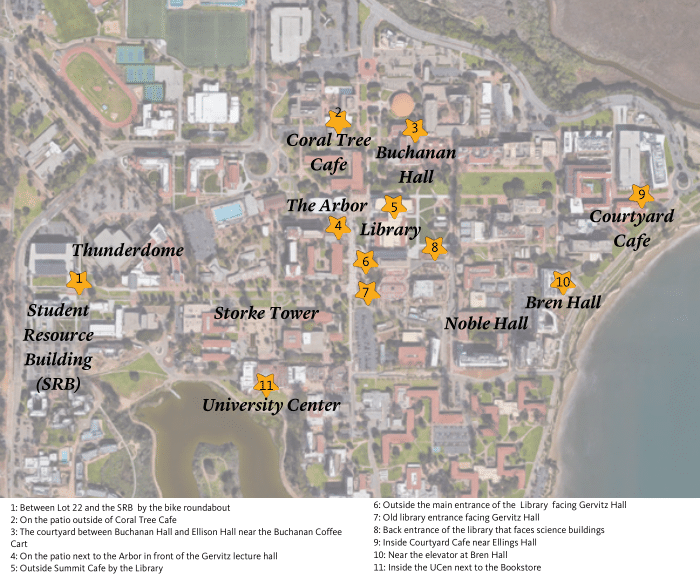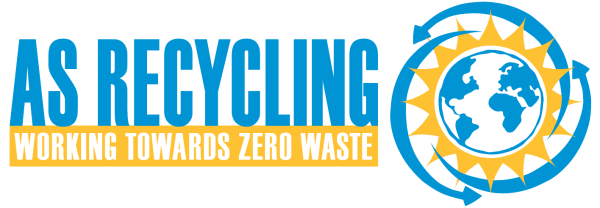What can go in the bin:
- ALL food scraps, including meat, dairy, and oils
- ONLY fibrous compostable products including coffee cups, to-go containers, etc.
- Napkins, wet or soiled paper, etc.
- BPI certified compostable PLA #7 bags
What can’t go in the bin:
- Plastic PLA #7 materials such as cups and lids
- Compostable utensils
- Plastic bags or containers– if you bring your compostables to the bin in a bag, please take the bag back with you
- Milk or ice cream cartons
- Paperboard (i.e. cereal boxes)
- Receipts
- Metal, plastic, glass, styrofoam
What is Composting?
Most Americans are now familiar with recycling and how it helps reduce the amount of waste we generate, but recycling alone is not enough to eliminate the impact of larger and larger human populations that produce and discard more and more each year especially because not all types of waste can be recycled. 21% of landfill waste in the US is actually made up of food, and yard waste accounts for another 9% (source and more information). The best way to reduce this contribution is through composting.
Composting is the act of turning organic waste, which includes food scraps and yard and landscaping trimmings into a soil-like product that can be used to aid plant growth and development. Certain plates, cups and to-go items can also be certified as compostable. There are several different methods of composting with each method being ideal for different situations and different material inputs, and there are also plenty of ways you can compost in your own home. The City of Santa Barbara and UCSB are also working to increase composting at the community and campus level, respectively.
For more information on composting at home or on-site, check out Department of Public Worms!


Why can’t we compost “compostable” plastics?
While PLA7 eco-plastics are technically compostable, they are too thick to biodegrade in time at the ReSource Center’s composting facility. The facility’s anaerobic digester that handles all of the organic material runs on a 2-month cycle, which allows food and fibrous materials to break down, but not the thicker PLA7 plastic.
Composting at UCSB
UCSB has a robust composting infrastructure that is improving every day. We have programs in place that process compostable waste both on and off-site, to divert as much organic waste from the landfill as possible. Below is a map of the indoor compost bins available around campus:

Big Belly Compost Bins
Anyone at UCSB can use one of our compost drop-off bins for food and compostable service ware products! We can accept a wide variety of organic waste because we send the bulk of this waste to a commercial waste-management facility, ReSource Center. The ReSource Center, a new state-of-the-art facility, converts waste by reclaiming recyclable materials, transforming organics into landscape nutrients, and creating renewable energy in the process of doing so. This process allows 60% of waste to be diverted from landfills and will bring the community’s recycling rate up to as far as 85%, if not more!
Composting at the Dining Commons and UCen
Housing and Residential Services Dining Commons and the UCen send the majority of their food waste off-site to Engle & Gray. Both departments compost all scraps from the kitchen (peels, stems, the parts that don’t make it onto your plate). The Dining Commons also compost all food waste left on your plate. The on-campus food vendors provide compostable ware such as plates, cups, and utensils, which can all go into the compost bins. A small amount of food waste from the Dining Commons is collected by the Department of Public Worms and composted at their on-site compost facility at UCSB.
